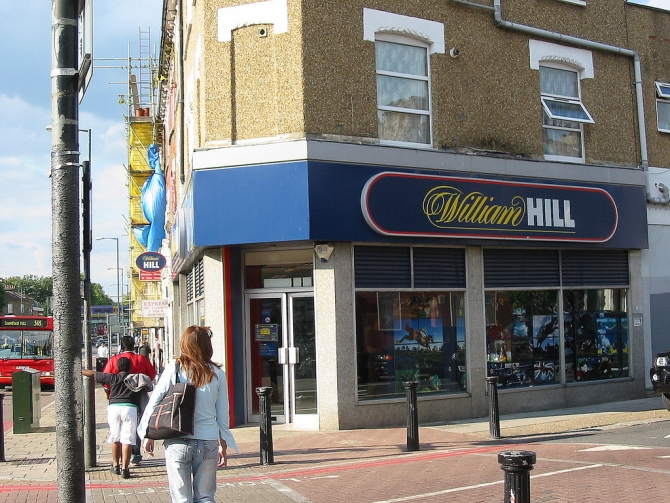For some time there has been concern in some quarters about the number of bookmakers taking-up high street properties. In response to this the government has announced that local authorities will be given powers to veto the opening of betting shops where they feel that ‘clustering’ is taking place.

The Association of British Bookmakers which points out that, despite perceptions, there are actually fewer betting shops today than in the 1970s is certain to oppose the proposals. In a consultation that took place last year, the association claimed that betting shops were no more highly concentrated than other retailers and that they added to ‘the vitality and vibrancy of the high street.’
Meanwhile bookmaker William Hill has cited another piece of government legislation for its decision to close a total of 109 high street shops by the end of 2014, resulting in the potential loss of around 430 jobs. The bookmaker blames the raising of duty on fixed odds betting machines from 20 per cent to 25 per cent for the closures.
Chief executive of the brand, Ralph Topping, says; “As a direct result of the government’s unexpected announcement about an increase in machine games duty to 25 per cent, we have reviewed shop profitability and will be closing a portfolio of 109 shops this year, putting circa 420 shop employees at risk of redundancy.
“This is particularly disappointing as, through the economic downturn, we have worked hard to grow our retail base but this further planned increase in indirect taxation makes this action necessary.”
The government felt a tax increase on gaming machines was necessary after a report conducted last year found that the poorest quarter of England’s population gambled more than £13 billion on high stakes risks. However, the impact it has had upon bookmakers has been steep – William Hill warned that the move would cost it around £22 million per year, and rival brand Ladbrokes has announced its intention to close shops as a result.
A higher rate of taxation has already begun to affect William Hill, with the chain posting a 14 per cent drop in operating profits in its most recent update. Fortunately, this blow was cushioned by a 39 per cent increase in its online operations year on year and a 78 per cent rise in gambling using mobile devices.
Simon Gergel of Allianz Global Investors does not believe that the upcoming closures will have too great an effect upon William Hill’s prospects.
He says; “Overall we think William Hill is well positioned for the future of the UK and international betting industry which is being driven by online betting.”
However, together with the proposed council powers to limit new openings, the closures are certain to have an impact on high street vacancy levels, particularly if other bookmakers follow suit.
Previous Post
Consortium buys Salford Quays Dock Office Building